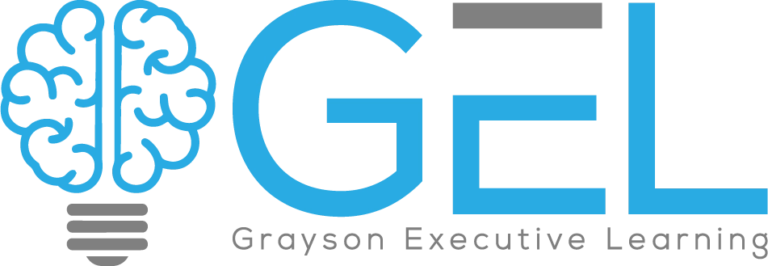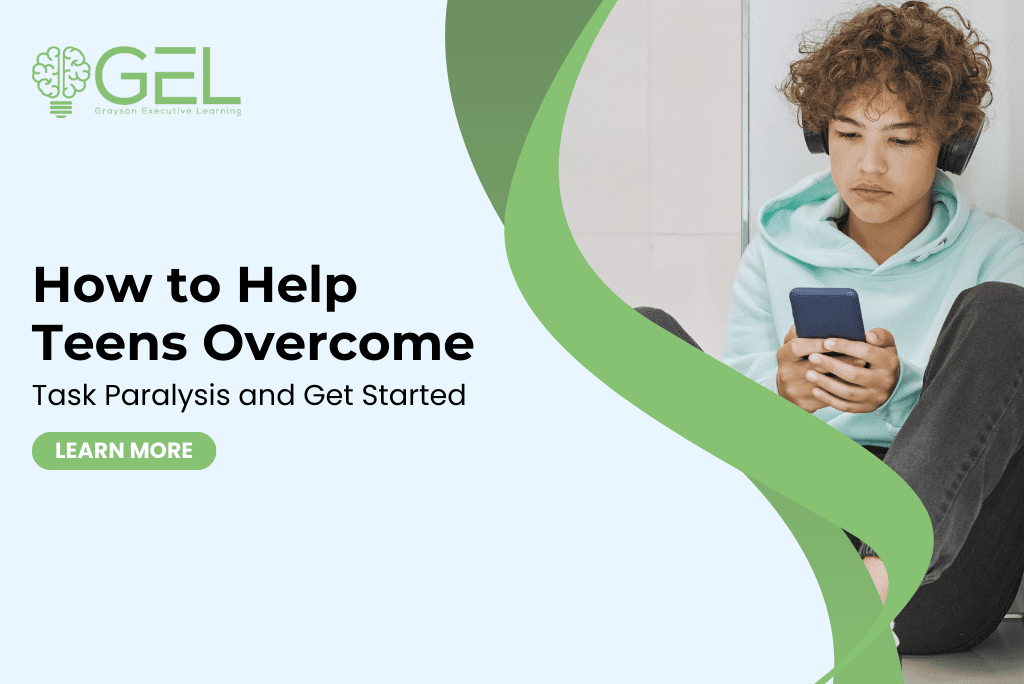When your teen sits down to start homework but stares at a blank page, it can feel like nothing will get done. For many teens with ADHD, this is not procrastination or laziness. It is something known as task paralysis. Task paralysis happens when overwhelm, perfectionism, or executive function challenges make it nearly impossible to begin. The good news is that with the right strategies and support, teens can break through this cycle and learn how to get started.
What is Task Paralysis?
Task paralysis is the experience of knowing what needs to be done but feeling frozen and unable to start. For teens with ADHD, this often shows up when:
- There are too many steps in an assignment
- The task feels boring or unimportant
- Fear of failure makes the project feel overwhelming
- Executive function skills like planning and organization are not strong enough to support action
Research shows that teens with ADHD are especially prone to task paralysis because their brains process information differently. Tasks that look simple to others can feel complicated and draining, which increases the likelihood of freezing before even taking the first step. This is especially true for high school students, who are managing larger projects, longer essays, and greater academic expectations than they experienced in earlier grades.
Task Paralysis vs. Procrastination
While the two may look similar, they are not the same:
- Procrastination is a choice to delay something unpleasant or difficult.
- Task paralysis is a freeze response where the brain cannot move forward even when the teen wants to.
This distinction is important. When parents understand that paralysis is not a lack of effort but a neurological response to overwhelm, they can offer more empathy and better support.
Signs Your Teen May Be Stuck in Task Paralysis
Look for these common signs:
- Avoiding schoolwork until late at night
- Spending hours on small distractions instead of starting homework
- Complaining that assignments feel “too much” or “impossible”
- Breaking down in frustration when asked to begin
- Expressing fear of making mistakes or not doing something perfectly
Recognizing the signs early allows you to intervene with practical strategies before the stress builds up.
6 Ways to Help Teens Overcome Task Paralysis
1. Break Tasks Into Small Steps
Large projects feel overwhelming when viewed as a whole. Teach your teen to identify the very first step, such as opening a notebook or writing one sentence. Small wins build momentum and reduce anxiety.
2. Use Visual To-Do Lists
Writing tasks down clears mental clutter. A visual to-do list or planner helps teens prioritize and see progress as they check off each completed step.
3. Set Time Blocks
Encourage your teen to work in short, timed sessions, such as 20 minutes of focused work followed by a 5-minute break. This makes starting less intimidating and keeps energy steady.
4. Focus on Progress, Not Perfection
Perfectionism often fuels paralysis. Remind your teen that it is better to get something done imperfectly than not at all. Celebrate effort and progress rather than flawless results.
5. Add Rewards and Accountability
Pairing work with small rewards, such as a favorite snack or a short break with a hobby, can increase motivation. Having an accountability partner, whether a parent, peer, or coach, also helps teens stay on track.
6. Teach Emotional Regulation
When frustration rises, teens benefit from mindfulness techniques like deep breathing, stretching, or journaling. Calming the nervous system makes it easier to re-engage with a task.
Final Thoughts: Starting is the Hardest Step
Task paralysis is a common but manageable challenge for teens with ADHD. By breaking tasks into smaller steps, creating supportive routines, and focusing on effort over perfection, parents can help their teens move from feeling stuck to feeling capable. The right guidance builds not only productivity but also long-term confidence.
How Grayson Executive Learning Supports Teens
Grayson Executive Learning (GEL) is a boutique Academic and ADHD/Executive Function Coaching practice that specializes in providing premium one-on-one academic coaching services to high school and college students with ADHD and executive function difficulties.
Click here to learn how we can help your student truly reach their academic potential while developing critical life and independence skills.
We look forward to serving you.


